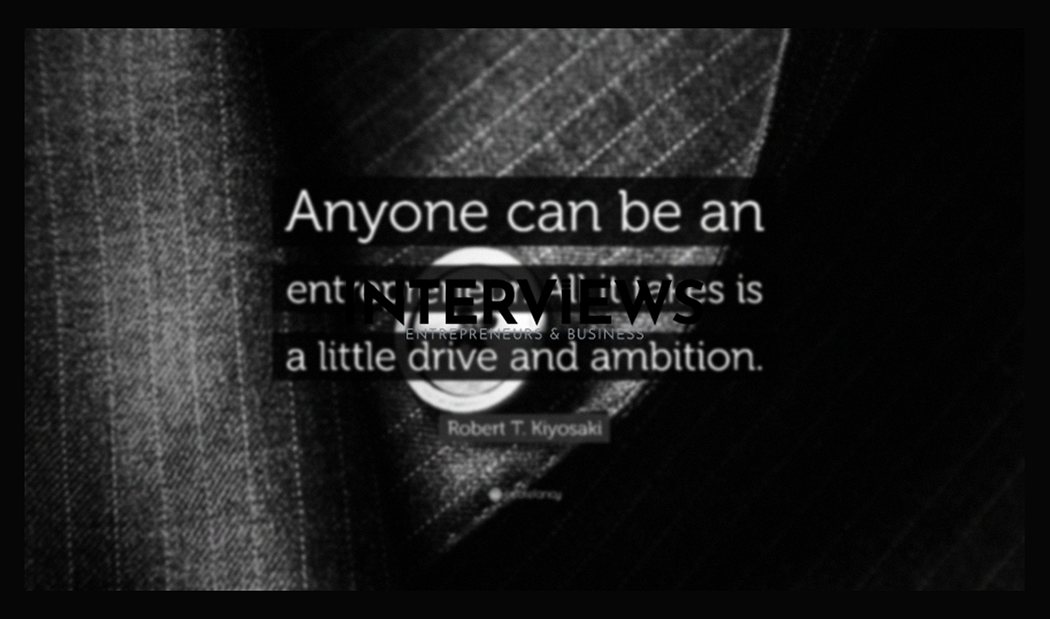Unlock Entrepreneurial Genius: Your Must-Read Booklist and Success Manual
Want to be an entrepreneur? Good choice! It’s like picking the rollercoaster over the kiddie train. Thrilling, scary, and possibly nauseating, but undeniably memorable. A key way to increase your survival and thriving chances in this journey is reading. Books can be powerful tools for entrepreneurs.
Your Entrepreneurial Reading Starter Pack
This is your mental workout space. Skip the bicep curls; focus on your brain.
- “The Fountainhead” by Ayn Rand: Explore deep individualism. Some love it, some hate it. It will get you thinking about your vision.
- “The Effective Executive” by Peter Drucker: Manage your time. Netflix binges won’t build empires.
- “The Innovator’s Dilemma” by Clayton Christensen: Even giants can fall. Complacency is comfortable but deadly.
- “Business Adventures” by John Brooks: Warren Buffett’s favorite book. If he likes it, so should you.
- “Benjamin Franklin” by Walter Isaacson: The first entrepreneur. Genius at multitasking and kite flying. Learn from this legend.
- “Think and Grow Rich” by Napoleon Hill: Mindset magic. Some view it as woo-woo; others call it essential.
- “Conscious Capitalism” by John Mackey and Raj Sisodia: Profit with purpose. Can they exist together? Yes.
- “The Lean Startup” by Eric Ries: Fail quickly, learn quickly. It’s a modern mantra. Iterate to succeed.
- “Good to Great” by Jim Collins: From being good to legendary. It’s strategy and discipline, not luck.
- “Zero to One” by Peter Thiel: Build the future, don’t copy the past. Originality is key.
- “The E-Myth Revisited” by Michael E. Gerber: Focus on your business, not just in it. Escape the technician trap and be an owner.
- “Rework” by Jason Fried and David Heinemeier Hansson: Challenge traditional business wisdom. Less talk, more action.
- ‘The Intelligent Investor’ by Benjamin Graham: Master investment strategies. Value long-term over quick schemes.
- ‘How to Win Friends and Influence People’ by Dale Carnegie: People skills matter for success. Build connections ethically.
- ‘Common Stocks and Uncommon Profits’ by Philip Fisher: Find exceptional companies and invest wisely. Patience matters.
- ‘Influence: The Psychology of Persuasion’ by Robert Cialdini: Learn how to persuade ethically. Useful for sales and marketing.
- “The Power of Habit” by Charles Duhigg: Change your habits, change your business. Small alterations can lead to big results.
- “Dare to Lead” by Brené Brown: Vulnerability is strength. Real leadership requires authenticity.
- “The 7 Habits of Highly Effective People” by Stephen R. Covey: Timeless principles for personal and professional development.
- “Thinking, Fast and Slow” by Daniel Kahneman: Understand brain quirks to make better decisions. Smarter, not just faster.
- “Rising Strong” by Brené Brown: Recover from setbacks. Resilience is an entrepreneur’s superpower.
- “The Mom Test” by Rob Fitzpatrick: Speak to customers honestly. Are they just being nice about your idea?
- “The Hard Thing About Hard Things” by Ben Horowitz: Entrepreneurship is tough. Get real advice for difficult times.
- “Zero To One” by Peter Thiel: Important enough to mention twice. Create something original.
- “The Simple Path to Wealth” by J.L. Collins: Learn investing basics without a finance degree.
- “The Millionaire Fastlane” by M.J. DeMarco: Avoid the slow wealth path. Build advantageous assets.
- “The Bogleheads’ Guide to Investing” by Taylor Larimore, Michael LeBoeuf and Mel Lindauer: Investing tips for regular folks. Keep it simple and low-cost.
- “Life 3.0” by Max Tegmark: AI’s role in humanity’s future is crucial. Be ready for what’s ahead.
- “Human Compatible” by Stuart Russell: Ensure AI remains beneficial for humanity. Ethical issues matter for tech entrepreneurs.
- “Our Final Invention” by James Barrat: Understand the risks of artificial intelligence. A dose of skepticism is necessary in the AI era.
- “Superintelligence” by Nick Bostrom: Explore super-human AI possibilities. Concepts are mind-bending.
- “Merchants of Doubt” by Naomi Oreskes and Erik M. Conway: Learn how doubt misleads people. Critical thinking is essential now.
- “What We Owe the Future” by William MacAskill: Longtermism reflects our duties to future generations. Think beyond quarterly gains.
- “Sapiens: A Brief History of Humankind” by Yuval Noah Harari: A broad view of humanity and business. Context matters.
- “Guns, Germs, and Steel: The Fates of Human Societies” by Jared Diamond: What makes societies thrive? Geography, technology, and luck play roles.
- “Outliers: The Story of Success” by Malcolm Gladwell: Success hinges on talent, opportunity, timing, and effort.
- “Factfulness: Ten Reasons We’re Wrong About the World – and Why Things Are Better Than You Think” by Hans Rosling: Data-based optimism challenges your worldview.
- “Finite and Infinite Games” by James P. Carse: Are you playing to win? Different goals require different mindsets.
- “The Alchemist” by Paulo Coelho: Fiction that inspires entrepreneurs. Follow your dreams amidst fear.
- “Principles” by Ray Dalio: Organize your decision-making processes. Make an operating manual for life.
- “The Psychology of Money” by Morgan Housel: It’s about behavior, not just math. Master finances through emotional control.
- “Atomic Habits” by James Clear: Minor changes lead to significant results. Incremental improvement holds power.
- “Man’s Search For Meaning” by Viktor Frankl: Seek purpose amidst suffering. Resilience brings meaning during challenges.
Reading: The Secret Weapon of Top Entrepreneurs
Think entrepreneurs lack time for books? Think again. Reading is common among industry leaders.
- They read a lot. This is a business strategy, not a hobby.
- Warren Buffett? He spends eighty percent of his day reading. It’s like a full-time job for him.
- Bill Gates? He aims for one book a week to keep his mind sharp.
- Mark Zuckerberg? He tackles one book every two weeks in a book club format. Sharing knowledge matters.
- The average CEO? Reads sixty books annually, or five books monthly. Can you keep up?
- Elon Musk? Once read two books daily. Sure, that’s superhuman, but it explains things.
Why Books are an Entrepreneur’s Best Friend
Reading goes beyond appearing smart at social events; it hones your entrepreneurial edge.
- Enhances critical thinking. Books expose you to varied perspectives and prompt analysis. It’s mental sparring.
- Challenges assumptions. Reading opens your echo chamber revealing fresh ideas and blind spots.
- Makes informed decisions. Better thinking results in improved choices. Learn from the triumphs and failures of others through books.
Oprah Winfrey said: “What I know for sure is that reading opens you up. It exposes you and gives you access to anything your mind can hold.” In essence, books act as your intellectual lift towards success.
Entrepreneurial DNA: Skills and Traits You Can Cultivate
Are entrepreneurs made or born? Spoiler: both exist, with the ‘made’ part largely stemming from… learning and reading!
- Determination: Grit paired with persistence leads to success over quitting.
- Risk-Taking: Calculated risks require comfort with uncertainty or feigned confidence.
- Optimism: Finding opportunities amidst obstacles leads to a half-full glass mindset.
- Curiosity: Continually ask ‘why’ and ‘what if.’ Stay inquisitive always.
- Problem-Solving: Shift challenges into solutions akin to a business MacGyver.
- Confidence: Trust in yourself and your vision matters; fake it until reality hits, supported by skills.
- Adaptability To Change: Pivot where necessary since change is business’s only constant; stay flexible.
- Persistence: Continue despite difficulty; see determination with added strength.
- Critical and Creative Thinking Skills: Analyze, innovate, and outthink competitors. Your brainpower serves as a superpower.
- Strategic Thinking and Planning Skills: Focus on long-term goals rather than day-to-day issues; think chess, not checkers.
- Branding, Marketing, and Networking Skills: Publicize yourself and your business well; people must know you exist to succeed.
- Teamwork and Leadership Skills: Inspire people. Manage teams. An entrepreneur needs help.
- Time Management and Organizational Skills: Be efficient. You need to do things well. Time equals money.
- Sales Skills: Persuade customers. Sell your product. Essential for revenue.
- Stress Management Skills: Stay calm. Carry on amidst chaos. Entrepreneurship brings stress; learn to manage it.
- Leadership: Inspire and guide others. Create a vision and unite your team.
Entrepreneurship: Learnable, Relearnable, Unleashable
Good news! Entrepreneurship does not require special traits. It is a skill you can cultivate. Sometimes, you just need to remember how.
- Entrepreneurship is learnable. Or rather, it can be relearned. We were curious as children.
- Born with it? Yes! Everyone begins with curiosity. Life often dims that light. Let’s reignite it.
- Experience matters. Start a business or get an internship. Invest sweat equity, enter competitions, seek mentorship.
- Learn, network, mentor. The three pillars of entrepreneurial growth. Books help, but real experiences and guidance matter more.
- Entrepreneurs are made, not born. It requires good choices, perseverance, and openness to learn. That is the key.
Education: Degrees That Don’t Trap You in a Cubicle
A formal education can support your entrepreneurial journey. Here are degrees that make sense for future entrepreneurs.
- Business Degree: Obvious yet effective. It covers business knowledge, leadership, communication, and critical thinking.
- Marketing Degree: Make people excited about your product. Learn branding, messaging, and how to reach your audience.
- Finance Degree: Learn to manage money. Understand how to earn and save. Numbers drive business success.
- Computer Science Degree: Technology dominates today. Master coding skills and digital literacy.
- Design Degree: Create beautiful and user-friendly products. Aesthetics can drive sales.
- MBA: Gain advanced business skills. It is not the only path but can help with scaling businesses.
Age is Just a Number (Especially in Entrepreneurship)
Too old to start a business after 30? Nonsense. Experience is often an asset in entrepreneurship.
- Not too old after 30. You’re still young in entrepreneur years.
- Many successful late bloomers. Colonel Sanders started KFC at 65. Vera Wang launched her fashion line at 40.
- Average age of successful founders: 35-45. Experience and connections contribute to success.
- Twice as many successful entrepreneurs above 50 than below 25. Wisdom often trumps youth.
- Over 50? Better chance of success. Use your life experience and connections wisely.
Money Matters: Math and Financial Savvy for Entrepreneurs
Let’s discuss finances. Understanding money is crucial for making, managing, and multiplying it.
- Math is crucial. Familiarize yourself with numbers; they are the backbone of business.
- Basic math is your ally. Learn fractions, decimals, percentages, and statistics. Essential tools for success.
- Manage your expenses. Saving money is as important as earning it.
- $250k to $1 million? It’s a long game. Invest consistently for high returns over time.
- Know your risk tolerance. Ensure investments align with your comfort level.
Entrepreneurship Defined: It’s More Than Just a Buzzword
What does ‘entrepreneurship’ mean? Let’s break it down simply.
- Entrepreneur: A person who starts and manages a business.
- Entrepreneurship: The process of launching, developing, and expanding a business.
Personality and Smarts: What Makes an Entrepreneur Tick?
Are there personality types that thrive in entrepreneurship? What intelligence matters most?
- Common personality types: ESTPs, ENTPs, ESTJs, ENTJs, INTJs, ISTJs. Action-oriented, decisive individuals often succeed.
- Holistic intelligence is crucial. Emotional, creative, social, and analytical skills matter equally to IQ.
- Average entrepreneur IQ: 120-125. You do not need genius-level intellect. Drive also plays a key role.
The Million-Dollar Question (Entrepreneurs Ask Themselves)
Every entrepreneur confronts major questions. Here are two vital ones that spark ideas.
- What irritates you? Identify pain points and create solutions. Problems signal opportunities.
- What do you want that’s unavailable? If you desire something, chances are others do too. Fill the market gap.
Ditch excuses. Pick a book from this list to begin your journey! The entrepreneurial adventure awaits!





